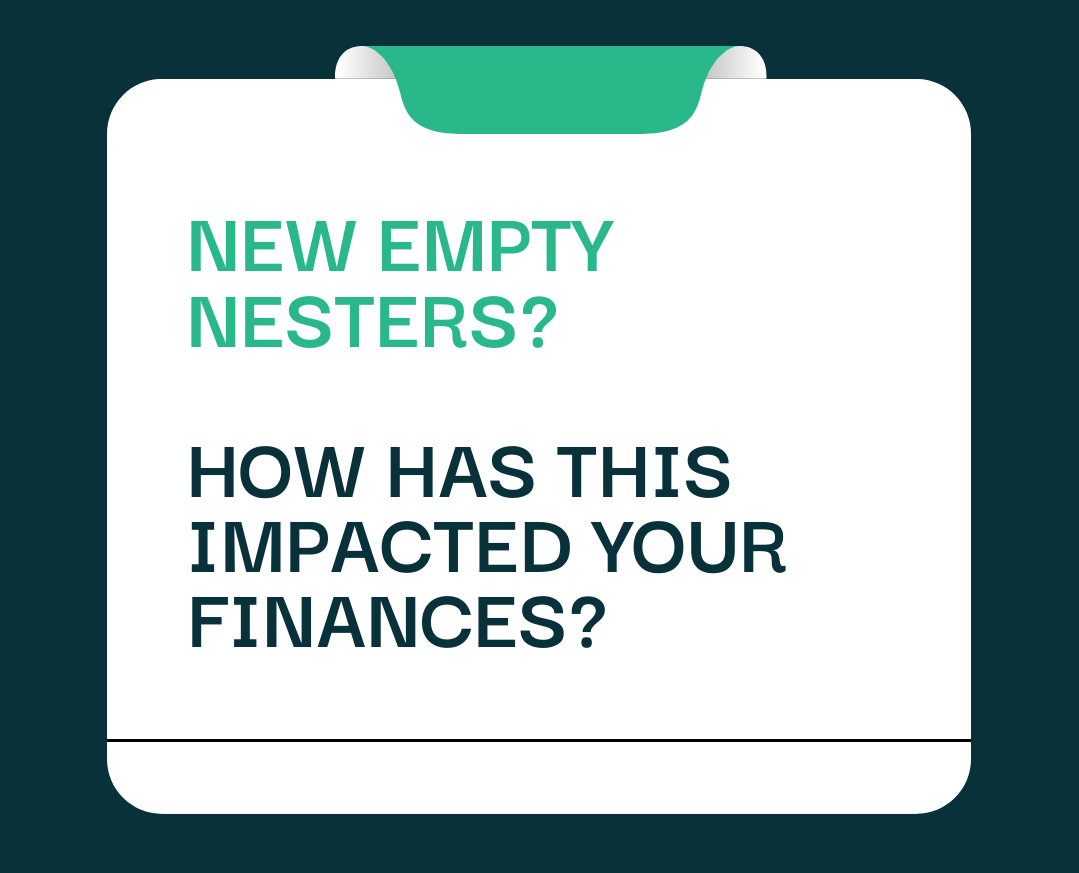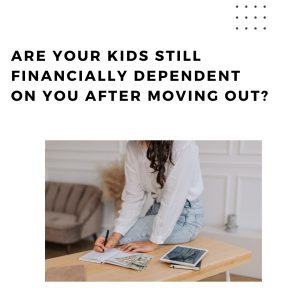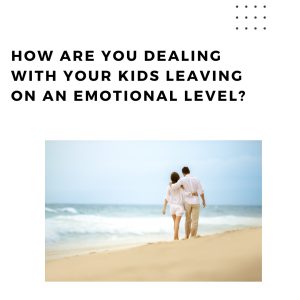
28 Dec New Empty Nesters? How has this impacted your finances?
Seeing your children leave the nest after becoming full-blown adults is a bittersweet moment. On the one hand, we feel filled with nostalgia and the fear of our lives becoming emptier. On the other hand, we finally have more time for ourselves and can plan our daily life and long-term goals without taking into account parental responsibilities all the time.
Whether our life will improve or not as a consequence of not having the kids around anymore depends mostly on how we manage this transition emotionally, financially, and in terms of daily activities.

Are your kids still financially dependent on you after moving out?
Our children leaving the house doesn’t automatically mean they will no longer depend on us. Many young people become completely financially independent only years after moving out.
Often, they are off to college, and while the money we saved for their higher education and/or their student loan (or scholarship) covers the most important expenses, they may still be dependent on us for certain things, especially if they are not working part-time while studying.
Other times, they leave the house to start working, but their entry-level job doesn’t pay very well, so we send them a monthly sum to integrate their income until they earn a fair salary.
When redefining your budget as an empty nester, it’s essential to determine to what exact extent your kids leaving the house equals an increase in available income for mom and dad.
Are you rightsizing?
While many people immediately think of how to spend the extra money after no longer having to “pay the kids,” this is not the first clever step to take.
You are already familiar with the concepts of want and need, which we explained in the previous topics. When our children are around, our entire budget is based on the sum of their needs, their wants, our needs, and our wants. This doesn’t only refer to the money we assign to everyday variable expenses like groceries and personal care products. Here are some real-life examples.
- We may pay for a Netflix or Prime Video subscription, but our daughter was the only one using it.
- Our current home internet plan may take into account the web usage needs of four people, but now there are only two left.
- Our monthly budget for eating out used to include what our son needed to go out with friends on the weekend, but now he has a new job and can pay for that by himself.
- We bought an SUV to drive around with the family. This caused an increase in monthly gas costs. Now that the kids are out, a smaller car is enough for our daily activities and can help us save gas money.
Rightsizing means redefining your current level of spending based on the fact that there are now fewer people living in the same home. This step should precede any increase in spending due to more available income.
Reward or invest?
Once we have adjusted our budget to the new family size and reduced monthly spending, we can decide what to do with this higher financial availability.
Should we reward ourselves by indulging in more frequent holidays, better restaurants, and a new SPA subscription? Or should we use that money to pay debt faster, save more for retirement and increase our emergency fund?
Usually, the best solution is a mix of the two and will, of course, depend on many factors, including:
- whether our current savings rate guarantees a comfortable retirement or not
- whether we have put aside enough money for emergencies or not
- whether we were making significant sacrifices to support the kids or not
- whether we are satisfied with our current lifestyle.

How are you dealing with your kids leaving on an emotional level?
Even though many parents try to act as if it’s not a big deal, seeing your kids leave has a significant impact on our emotional life. It’s true, having them around all the time can be stressful and make us nervous or even angry sometimes. But it’s also true that our children are the people we care about the most in the whole world, whether they’re 5, 15, or 25.
We may feel empty inside when they’re no longer around, and we may also worry about them being safe out there without mom and dad supervising their lives.
This is a crucial time in our own life development because we must learn to rethink our daily lives, and even our self-image, without them. Spending more time with friends and finding new hobbies and activities to redirect our energy can help find new meaning and purpose.
At the same time, we must invent new ways to be there for our children when they need us while respecting their independence as full-blown adults.
Tell us how being an empty nester is affecting your life. Are you budgeting accordingly? Are you undecided on whether to increase your daily spending or save more for the future? And what about your emotional life? Do you miss having your kids around? Are you looking for ways to fill your life again?

